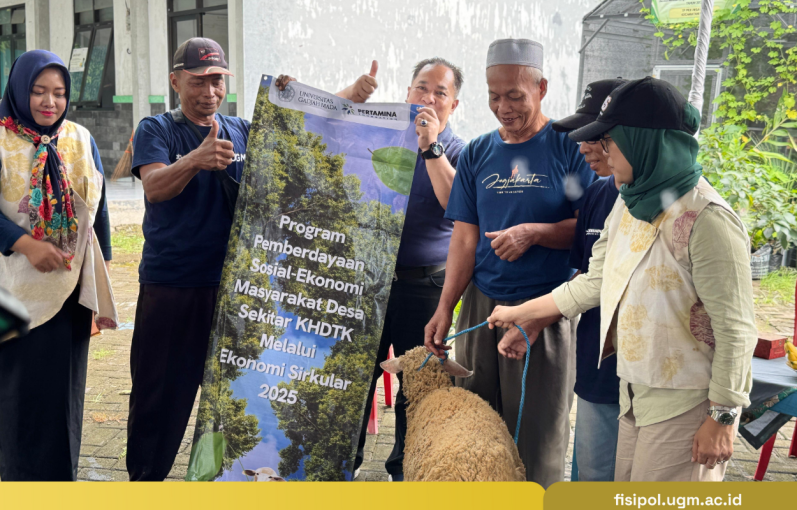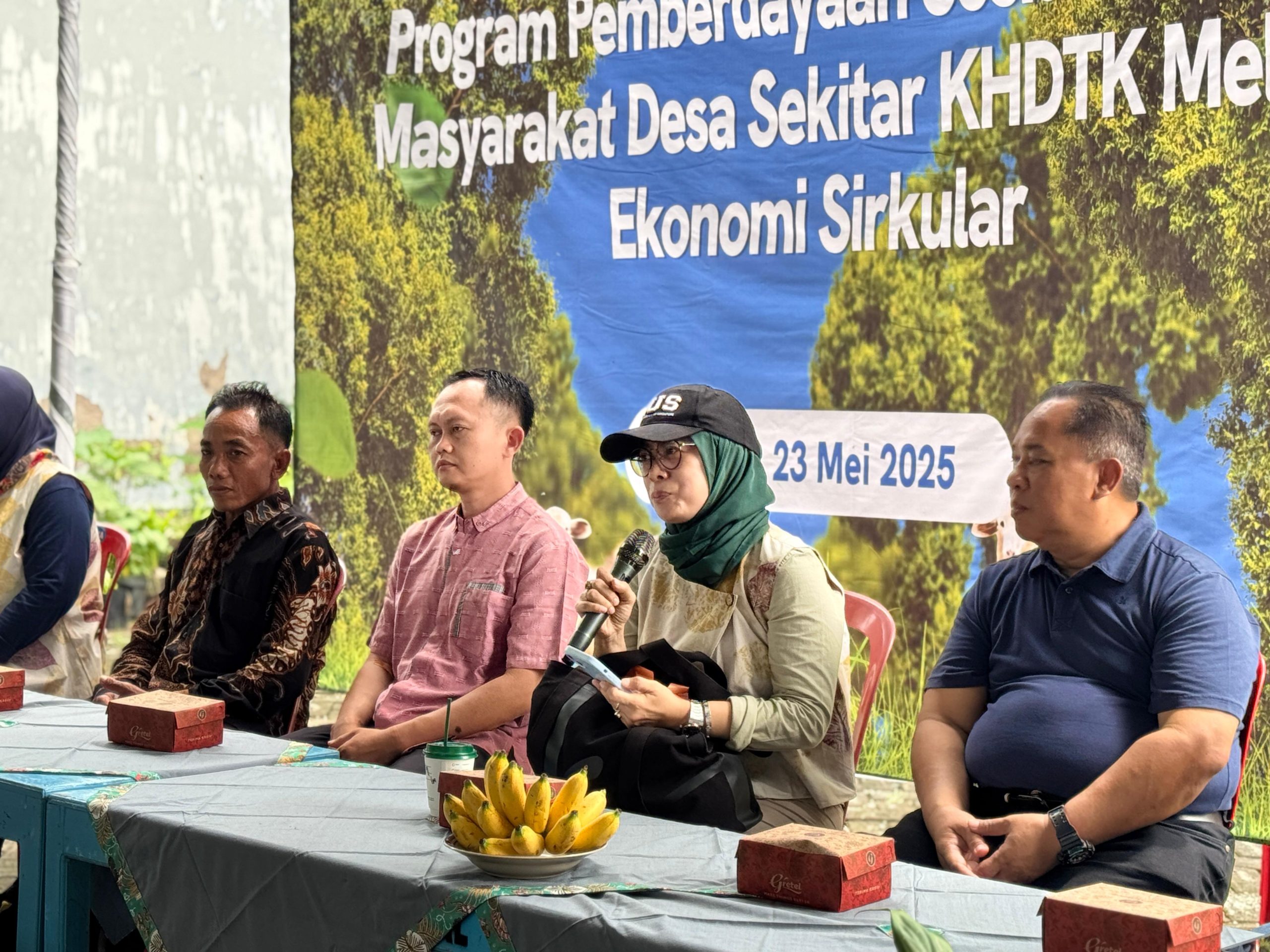
Yogyakarta, May 23th 2025─The Socio-Economic Empowerment Program for Village Communities Around Special Purpose Forest Areas (KHDTK) through a circular economy approach was officially closed in a ceremony at Pitu Village Hall, Getas District, Ngawi Regency, on Friday (23/5). The program, which ran from January to May 2025, is the result of collaboration between Pertamina Foundation, FISIPOL UGM, and Universitas Gadjah Mada.
During the five months of implementation, this program has provided skills training, local business assistance, household waste management into value-added products, and the formation of community business groups based on local potential and sustainability principles.
Djarot Heru Santosa, Director of the UGM Directorate of Community Service, in his speech expressed his appreciation for the running of the program, “We appreciate all parties who have assisted, the results are already there, we just need to continue to be sustainable so that the benefits can continue to be felt by local residents.”
The Vice Dean for Research and Community Service, Cooperation, and Alumni, Fina Itriyati also added her hope that the results of this program are not just products, but capacity building of the residents themselves.

“I hope of course that with this, the network will also grow, so that it becomes invaluable and can be useful,” said Fina.
In the closing ceremony of this program, 40 female sheeps and 2 male sheeps were also handed over to two livestock groups, namely the Jagawana and Gemah Ripah Pertagama Groups from Pitu Village, as a form of support for community economic development through livestock activities.
Representative of the Pitu Village Government, Khodam, expressed his appreciation for the spirit of assistance to residents and assistance from UGM. Meanwhile, the FISIPOL UGM emphasized its commitment to continue contributing to community development in an interdisciplinary and sustainable manner.
“We thank you for the assistance in the form of capacity building for Pitu residents who have been empowered so that they can produce extraordinary products. Thank you also for providing assistance that can be useful for empowering Pitu residents. The village government does not stop here, but (there will be) continued assistance in the future,” Khodam added.
This closing is expected to be the beginning of similar initiatives in the future, which emphasize self-reliance, innovation, and environmental preservation for the welfare of the village, especially as part of FISIPOL UGM’s commitment to the sustainable development goals, namely specifically on point 3 (healthy and prosperous life), point 8 (decent work and economic growth), point 11 (sustainable cities and settlements), point 12 (responsible consumption and production), and point 17 (partnerships to achieve goals).
